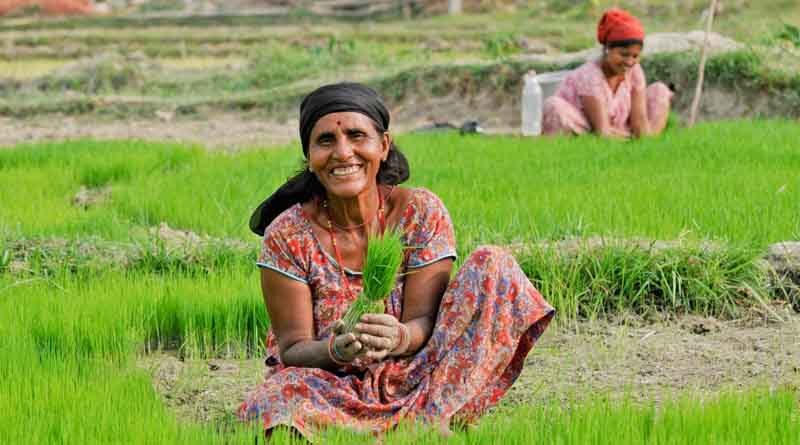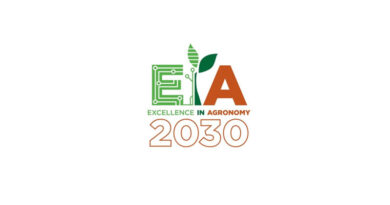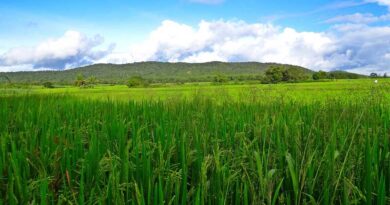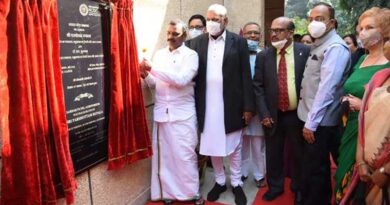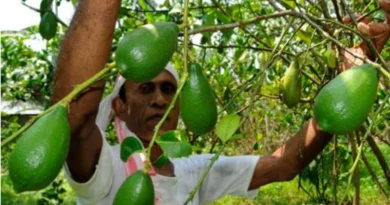Smallholder Farmers Need Immediate, Actionable Solutions Now Says CGIAR Excellence in Agronomy Initiative (EiA) at COP 27
18 November 2022, Zimbabwe: The CGIAR Excellence in Agronomy Initiative (EiA) hosted a roundtable event to publish a draft Climate Adaptation strategic paper on Agronomy and Climate Change Adaptation entitled Agronomic Adaptive Strategies to Strengthen Smallholder Farmers’ Resilience to Climate Change on November 16, at COP27. The EiA is calling on all stakeholders (governments, private sector, and non-governmental organizations, etc.) to provide comments on the draft paper before its final launch in 2023.
According to the paper, climate change and its effects are accelerating, bringing an urgent requirement for a practical response and adoption of inclusive processes to co-develop scalable strategies that enhance smallholder farmer adaptive capacity and resilience. The past decade has seen the world’s farmers in low- and middle-income countries sustain crop and losses of USD 108.5 billion from extreme climate events. “Smallholder farmers don’t have the luxury to wait for the world to figure things out, “says Mandlenkosi Nkomo – Chief Growth Officer, Excellence in Agronomy for Sustainable Intensification and Climate Change Adaptation, speaking at the event. “They need immediate actionable solutions now to help them adapt to climate change, mitigate its impact, enable more yield per hectare, efficiency and competitiveness.
According to the paper, shorter growing seasons, irregular rainfall patterns, rising temperatures, increasingly frequent heat waves, droughts, and floods as well as combinations of the same impair crop growth and have severe impacts on agricultural productivity. Adaptation is urgent and a new paradigm which includes pairing core agronomic practices and technologies with efforts that build farmer capacities to respond to, leverage, and capitalize on the surrounding production environments is required to achieve real change and unlock agronomy’s benefits for addressing climate change.
“Climate change is already leaving its negative mark on agricultural production,” says Todd Rosenstock, Principal Scientist, Climate Action, Alliance of Bioversity International and International Center for Tropical Agriculture (Bioversity-CIAT). “The changes and challenges that are emerging require a shift in how we conduct science if we are going to support the transition to a just and resilient food system.”
COP27 has seen governments and NPOs including the Bill and Melinda Gates Foundation make commitments to fund innovations for climate smart food systems to protect the yield and quality of crops and livestock from climate change. EiA is calling on governments, private sector, and non-governmental organizations to collaborate and coordinate an urgent response that puts agronomic practices within agricultural programs to help smallholder farmers boost yields, incomes, food security, and ecosystem health in smallholder farming communities.
“Whilst they are the least ones contributing to climate change, smallholder farmers are the hardest hit. Climate Adaptation in all its dimensions has never been this urgent,” says Petra Schmitter, Principal Researcher – Climate Change Adaptation, International Water Management Institute (IWMI). “There is an urgent requirement for a practical response and adoption of inclusive processes to codevelop scalable strategies that enhance smallholder farmer adaptive capacity and resilience.”
The CGIAR Excellence in Agronomy Initiative partners with African research institutes, local businesses, and farmer organizations. Together, they are using big data, analytics, and digital platforms to deliver insights that can boost incomes, food security, and ecosystem health in smallholder farming communities.
The initiative not only responds to demand from the public and private sector but also helps increase efficiencies through stronger collaboration and cross-learning among CGIAR centers and within the broader agronomy R&D ecosystem.
Every season, smallholder farmers seasonally make critical agronomic decisions regarding crop choice, planting dates and pest, disease, weed, soil fertility and water management, often based on suboptimal practices and information. EiA is working to promote climate change adaptation through improvements in soil health, yield and yield quality, water use efficiency, and nutrient use efficiency for farmers.
The Climate Adaptation research paper is co-authored by scientists Petra Schmitter, a Principal Researcher – climate change adaptation at the International Water Management Institute and Todd Rosenstock, a Principal Scientist, Climate Action at the Alliance of Bioversity International and International Center for Tropical Agriculture.
As part of the launch, EiA also showcased its Use Cases in Cambodia, Colombia, Democratic Republic of the Congo, Egypt, Ethiopia, Ghana, Ivory Coast, Kenya, Malawi, Mali, Mexico, Morocco, Nigeria, Peru, the Philippines, Rwanda, Senegal, Uganda, Vietnam, Zambia, and Zimbabwe. These Use Cases will generate evidence to develop lessons for global application.
Also Read: 54th Annual General Meeting of PMFAI held in Mumbai
(For Latest Agriculture News & Updates, follow Krishak Jagat on Google News)

